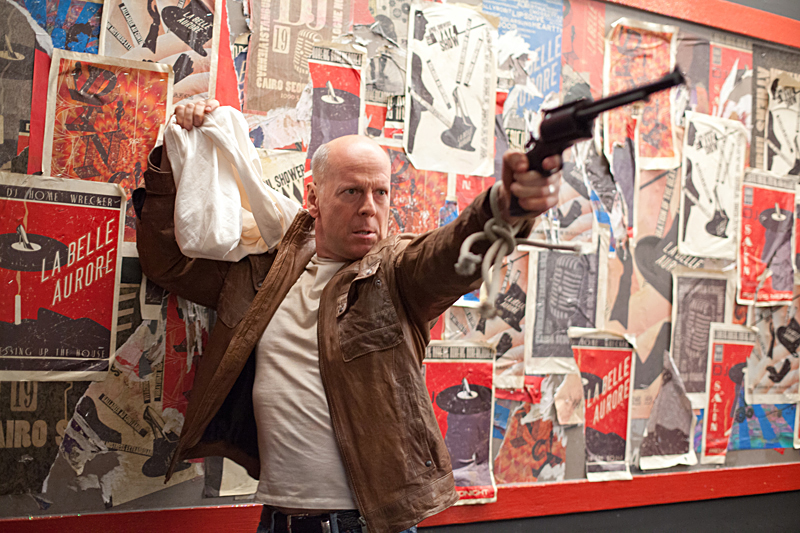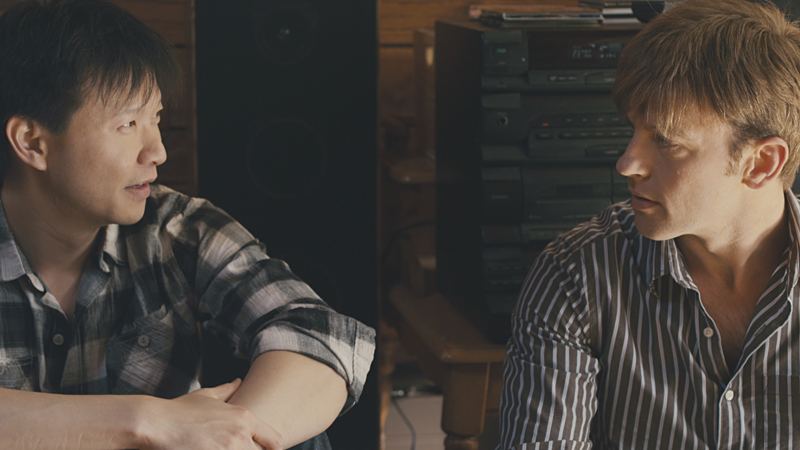Early in Rian Johnson’s time-travel thriller, Joe (Joseph Gordon-Levitt) sits at a diner and chats with his self from 30 years in the future (Bruce Willis). When the younger Joe asks the older one about the specifics of temporal displacement, the latter dismisses the question, telling his interlocutor what a waste of time it would be to sit there all day drawing “diagrams with straws.” Johnson would agree. A mindfuck movie less interested in geeking out on the details of time travel than in investigating the moral implications of a charged situation grounded in character, Looper no sooner lays out the ground of its setup (in almost didactically precise voice-overs) than it turns its characters loose to make their own life-altering choices. Johnson’s borrowings are obvious, whether in the plotting (recent sci-fi mindfuckers like Primer and Timecrimes vie with elements of noir and Bad Seed–style bad-toddler behavior), the settings (the dystopian city of the future is drawn from countless cinematic models), or specific touches (the hired thugs of 2072 dress like spaghetti-Western bandits). But Looper nonetheless satisfies wholly on the level of dramatic necessity. Thrilling in its deft juggling of complex narrative elements, utterly clear in its presentation, and unfolding with what feels like serious moral purpose, Looper favors the human scale over abstract philosophizing or meta-cinematic frippery. For Johnson, an inveterate pasticheur, it qualifies as a significant step forward.
Looper: Bruce Willis Tries to Kill Himself








